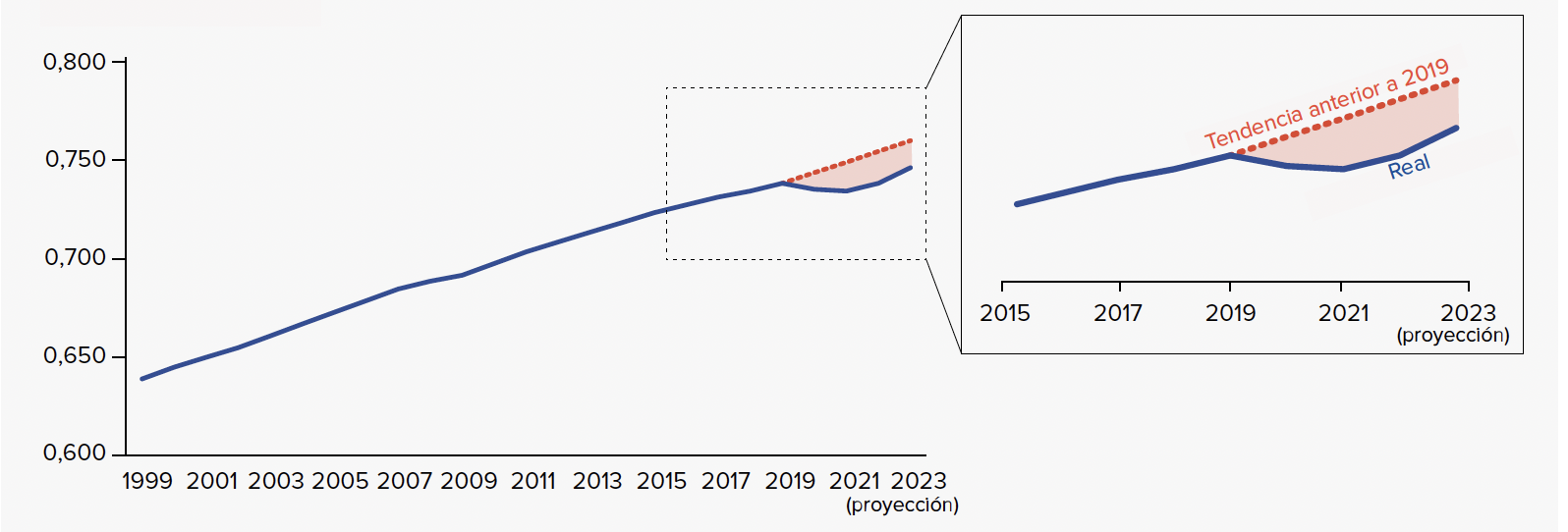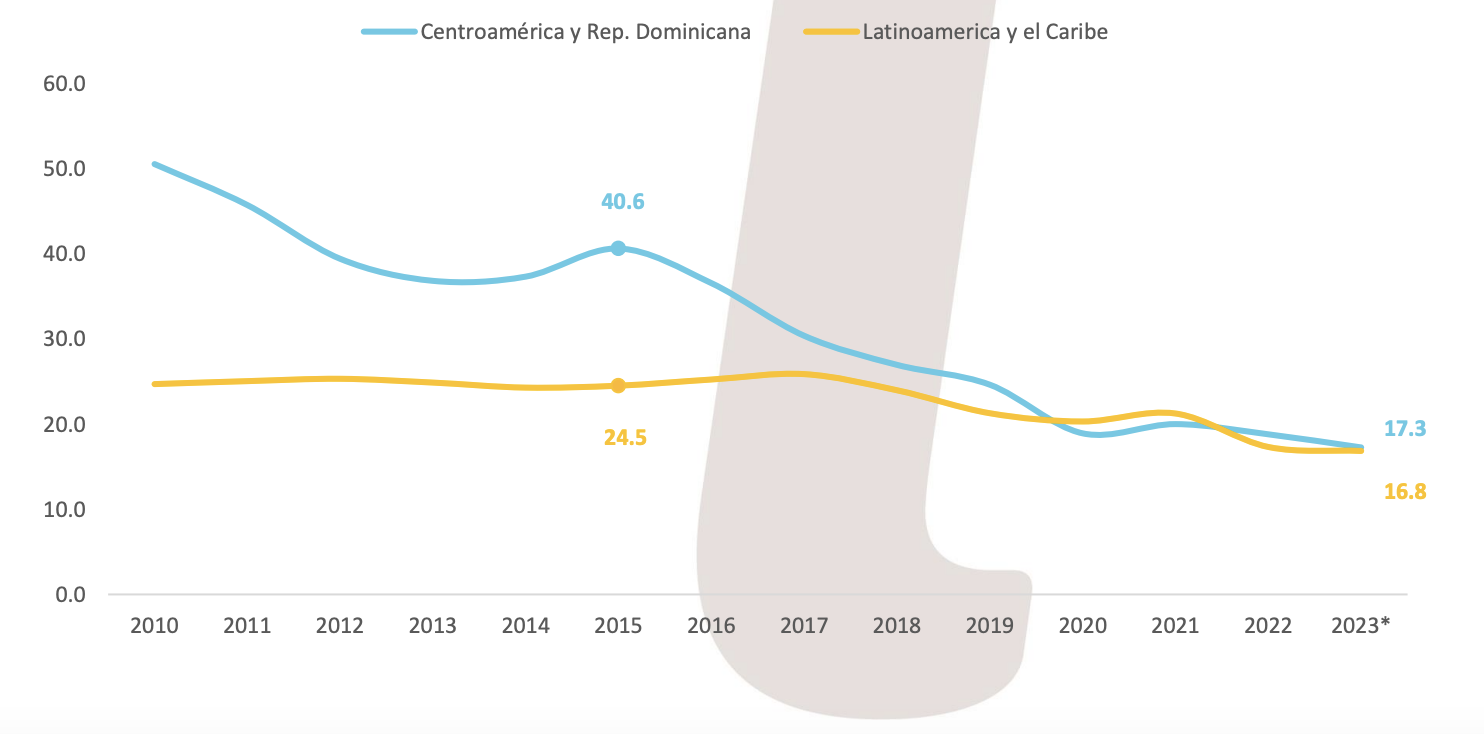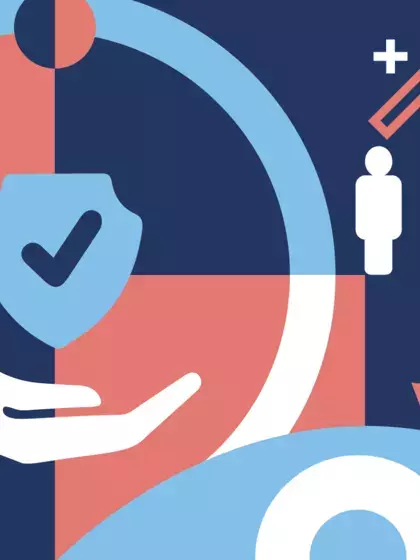Breaking the gridlock to further strengthen citizen security

The new Human Development Report 2023/2024 Breaking the Gridlock: Reimagining cooperation in a polarized world, published by the United Nations Development Programme (UNDP) emphasizes how the world has reached a new record in human development. This in itself should be great news. Nevertheless, upon closer inspection, not all seems to be going well.
The Human Development Index (HDI) is expected to reach historical highs in 2023, despite a record downturn in 2020 and 2021. These are deeply uneven gains. Wealthy countries are living at record highs of human development, whereas half of the least advanced countries are at the levels experienced prior to COVID-19. In this scenario, inequality has increased and political polarization has flared up.
 The value of the Human Development Index. Source: Figures from the Human Development Report Office based on data in Barro and Lee (2018), IMF (2023), UnDeSA (2022, 2023), UNESCO Institute for Statistics (2023), United Nations Statistics Division (2023) and World Bank (2023)
The value of the Human Development Index. Source: Figures from the Human Development Report Office based on data in Barro and Lee (2018), IMF (2023), UnDeSA (2022, 2023), UNESCO Institute for Statistics (2023), United Nations Statistics Division (2023) and World Bank (2023)
Democracy in jeopardy?
The HDI offers an overview of global development. Nine in 10 people around the world support the idea of democracy. This notwithstanding, over half of the world's population support leaders who undermine democracy. In Latin America this divergent trend is noticeable. According to the 2023 Latinobarometer, only 48 per cent of people support democracy in the region, and 54 per cent of people would not mind a non-democratic government taking office as long as it solves problems.
Most people in the region feel that their expectations have been dashed, bringing fundamental consequences for democratic coexistence and intensifying deterioration of the democratic process, as in the cases of Nicaragua and Venezuela.
We are at a crossroads. Polarization and mistrust in institutions make for a highly volatile cocktail in uncertain times. In Latin America, just 52 per cent of people trust in the police . Insecurity, inequality and armed conflicts have much to do with the fact that trust is at a low point.
According to InfoSegura data, over the last 10 years, the homicide rate in Central America and the Dominican Republic has declined significantly from 37.3 homicides per 100,000 population in 2014 to 17.3 per 100,000 population in 2023. This shows great progress. Nonetheless, so much remains to be done.

Homicide rate in Central America and the Dominican Republic and Latin America and the Caribbean (2010-2023) - 100,000 population. Source: Infosegura, based on data provided by the countries.
Tackling violence and insecurity is certainly a complex task. The problems of crime in Latin America are not only national, they are of a transnational nature as well, and they have an impact on democracy. Whether citizen security strengthens democracy, or weakens it is bound up with the risks that directly affect people, who demand comprehensive approaches and solutions, in order to leave no one behind.
"By adopting an opportunity-driven agenda that emphasizes the benefits of the energy transition and artificial intelligence for human development, we have the opportunity to break the current gridlock and reignite commitment to a shared future."
Achim Steiner, Administrator del PNUD.
In a more polarized region, we need to break the gridlock
The perception of insecurity encourages polarization, setting up a gridlock that prevents us from taking action together to address the democratic and governance challenges we face in the region. We need to break the gridlock! This is how:
- Going from counting to understanding. Understanding to acting and transforming. Citizen security is a necessary condition for human development. Without citizen security, people are unable to fully develop their capabilities.
- Promote comprehensive solutions that are gender informed and human rights-based, always ensuring the sustainability of institutions, democratic quality, freedoms and human development.
- Overcome polarization and noise that engenders mistrust in institutions and political actors, holding back human development.
- Implement people-centred public policies that focus on prevention and social investment. Development is a three-lane road–productivity, inclusion and resilience–with effective governance as the necessary foundation.





